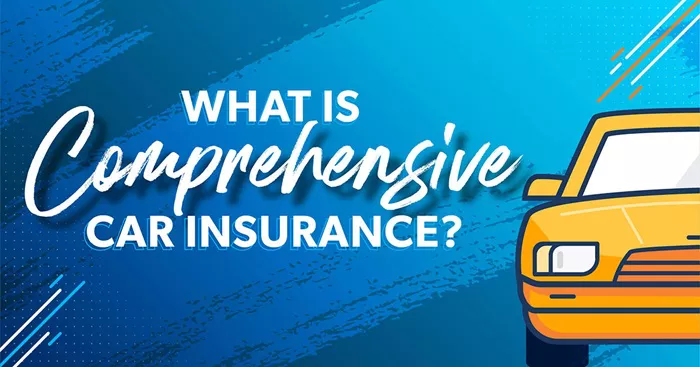Car insurance is a crucial aspect of vehicle ownership, providing financial protection against various risks. Among the different types of car insurance, comprehensive coverage is often discussed due to its extensive protection. This article explores whether comprehensive car insurance is worth the investment by examining its benefits, comparing it to other types of coverage, and evaluating its cost-effectiveness.
Understanding Comprehensive Car Insurance
Comprehensive car insurance is designed to cover a wide range of risks beyond the basic liability coverage. To make an informed decision, it’s important to understand what comprehensive coverage entails and how it differs from other types of insurance.
What is Comprehensive Car Insurance?
Comprehensive car insurance provides protection against damages to your vehicle that are not caused by a collision. This includes coverage for:
Theft: If your car is stolen, comprehensive insurance can help you recover its value.
Vandalism: Damage caused by vandalism, such as broken windows or keyed paint, is covered.
Natural Disasters: Events like floods, hurricanes, and hailstorms are included in comprehensive coverage.
Animal Collisions: If your car hits an animal, such as a deer, comprehensive insurance covers the damage.
Fire: Damage from fire, whether caused by an accident or other incidents, is covered.
Differences Between Comprehensive and Other Coverage Types
To assess the value of comprehensive insurance, it’s helpful to compare it with other types of car insurance coverage.
Liability Insurance
Liability insurance is the most basic form of car insurance required by law. It covers damages to other people and their property if you are at fault in an accident. However, it does not cover damage to your own vehicle.
Collision Insurance
Collision insurance covers damage to your vehicle resulting from a collision with another vehicle or object. Unlike comprehensive insurance, it does not cover non-collision-related incidents such as theft or weather damage.
Benefits of Comprehensive Car Insurance
Comprehensive car insurance offers several benefits that can provide peace of mind and financial protection.
Extensive Coverage
The primary benefit of comprehensive insurance is its extensive coverage. It protects against a wide range of risks that are not covered by liability or collision insurance. This means that you are better protected against unexpected events that could lead to significant financial loss.
Peace of Mind
Knowing that your vehicle is covered for various types of damage can provide peace of mind. This is especially valuable if you live in an area prone to natural disasters or if you have a high-value vehicle that could be a target for theft.
Financial Protection
In the event of a covered incident, comprehensive insurance can help you avoid out-of-pocket expenses for repairs or replacement. This financial protection can be particularly important if you cannot afford to pay for significant repairs or if your vehicle is stolen.
Evaluating the Cost of Comprehensive Car Insurance
When deciding whether to purchase comprehensive car insurance, it is important to evaluate the cost relative to the benefits it provides.
Factors Affecting the Cost
Several factors can influence the cost of comprehensive car insurance:
Vehicle Value
The value of your vehicle affects the cost of comprehensive insurance. Higher-value vehicles typically have higher premiums due to the increased risk and potential cost of repairs or replacement.
Location
Where you live can impact your insurance rates. Areas with higher rates of theft, vandalism, or natural disasters may result in higher premiums.
Deductible
The deductible is the amount you pay out-of-pocket before your insurance coverage kicks in. Choosing a higher deductible can lower your premium but means you will pay more in the event of a claim.
Driving History
Your driving history, including past claims and traffic violations, can affect your insurance rates. A clean driving record may result in lower premiums.
Is Comprehensive Insurance Worth the Cost?
To determine whether comprehensive insurance is worth the cost, consider the following factors:
Vehicle Age and Value
If you have a new or high-value vehicle, comprehensive insurance can be a wise investment. The protection it provides can help cover significant repair or replacement costs. For older vehicles with lower value, the cost of comprehensive insurance may not be justified if the potential payout is minimal.
Risk Factors
Evaluate the risks specific to your location and driving environment. If you live in an area prone to natural disasters or high theft rates, comprehensive insurance may offer valuable protection. Conversely, if you live in a low-risk area, you may weigh the benefits differently.
Financial Situation
Consider your financial situation and ability to cover potential repair or replacement costs. Comprehensive insurance provides financial protection, which can be beneficial if you are unable to afford unexpected expenses.
Making an Informed Decision
Deciding whether to purchase comprehensive car insurance requires careful consideration of your needs, risks, and financial situation.
Assessing Your Needs
Evaluate your individual needs and circumstances. Consider factors such as:
Vehicle Value: Higher-value vehicles often warrant comprehensive coverage.
Risk Environment: Assess the risks in your area, such as natural disasters or theft rates.
Financial Capacity: Determine if you can afford potential repair or replacement costs without insurance.
Comparing Insurance Options
Compare comprehensive car insurance with other coverage options to find the best fit for your needs. Consider factors such as:
Coverage Limits: Ensure that the coverage limits align with your needs and vehicle value.
Premium Costs: Compare premiums from different insurers to find the best rate.
Deductibles: Evaluate deductibles and their impact on your premium and out-of-pocket costs.
Consulting with an Insurance Agent
Consulting with an insurance agent can provide valuable insights into your coverage options. They can help you understand the benefits of comprehensive insurance and how it fits into your overall insurance strategy.
see also: Rising Car Insurance Costs Expected to Continue
FAQs
1. What is covered by comprehensive car insurance?
Comprehensive car insurance covers damage from theft, vandalism, natural disasters, animal collisions, and fire.
2. How does comprehensive insurance differ from collision insurance?
Comprehensive insurance covers non-collision-related risks, while collision insurance covers damage from collisions with other vehicles or objects.
3. How does the value of my vehicle affect the cost of comprehensive insurance?
Higher-value vehicles typically have higher premiums due to the increased risk and cost of repairs or replacement.
4. Can I lower my premium by choosing a higher deductible?
Yes, choosing a higher deductible can lower your premium but means you will pay more out-of-pocket in the event of a claim.
5. Is comprehensive insurance worth it for an older vehicle?
For older vehicles with lower value, the cost of comprehensive insurance may not be justified if the potential payout is minimal.
Conclusion
Comprehensive car insurance offers extensive coverage that protects against a wide range of risks, providing peace of mind and financial protection. Whether it is worth purchasing depends on factors such as the value of your vehicle, risk environment, and financial situation. By carefully assessing your needs and comparing insurance options, you can make an informed decision about whether comprehensive coverage is right for you.




















